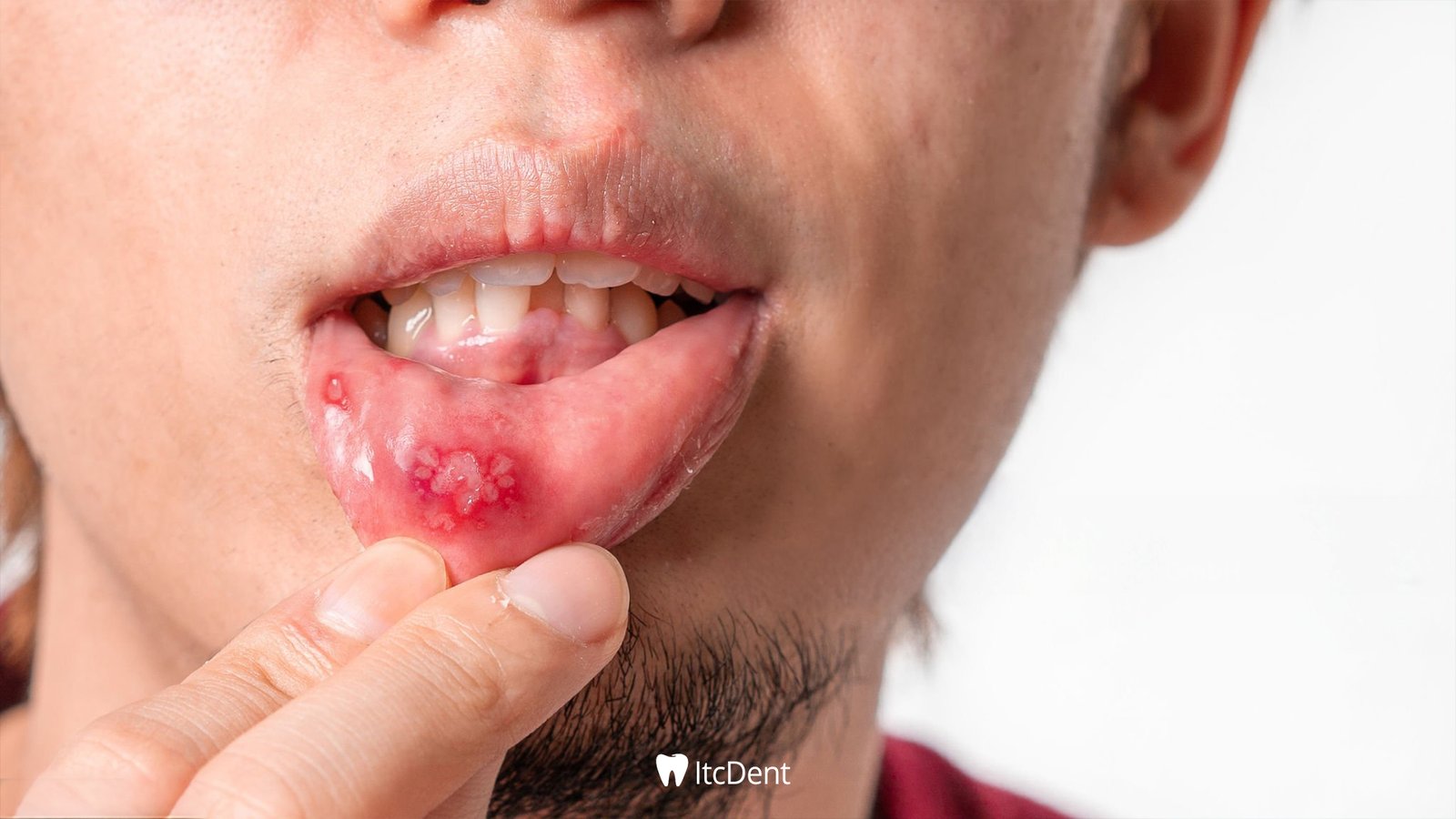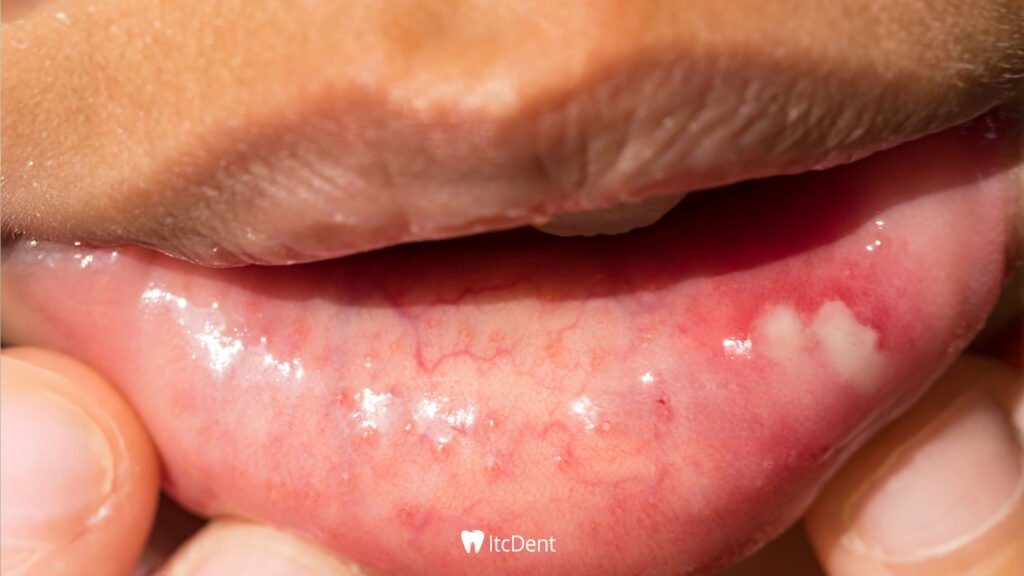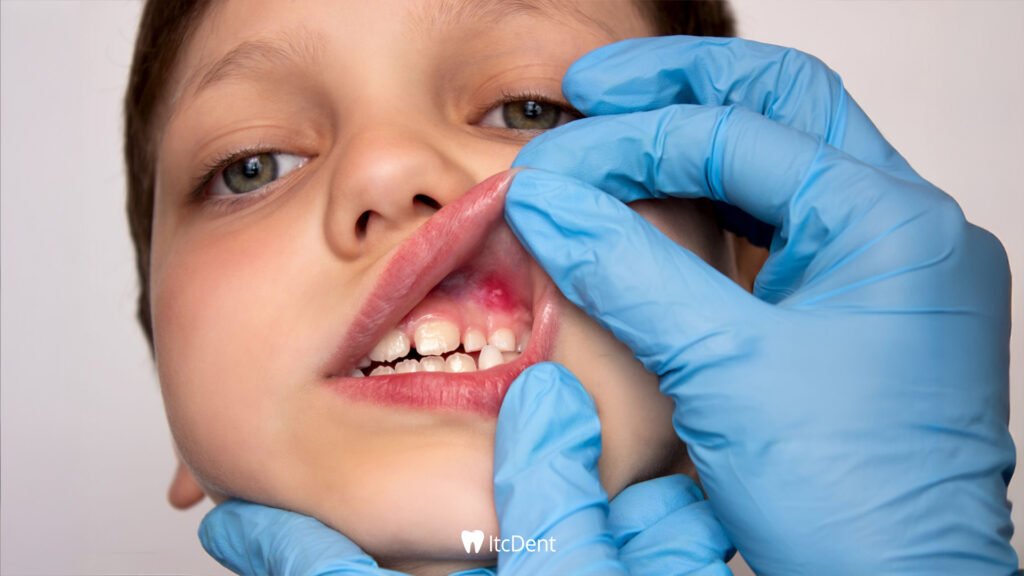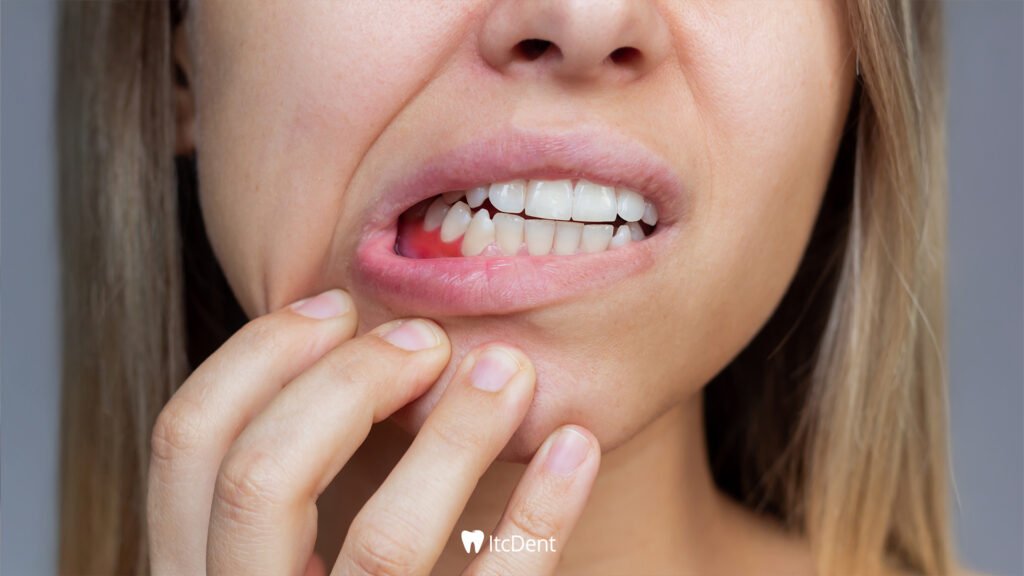
How to Get Rid of Mouth Sores
In the busy pace of daily life, we use one organ constantly, often without even realizing it: our mouth. The tissues inside our mouth are actively working when we talk, laugh, eat, or even just drink water. Despite being so frequently used, oral health is often overlooked. That is, until one day, a small but painful wound appears on our lip, tongue, or cheek. That tiny wound can suddenly make even the simplest tasks of the day difficult. We grimace when eating a bite of bread at breakfast, or wince involuntarily when sipping hot tea. We may pinch one corner of our mouth when speaking, or we may unknowingly apply pressure to the wound during sleep, waking up in pain.
While mouth sores may seem minor and unimportant at first, they can become a problem that directly impacts quality of life. Furthermore, they can affect people of all ages; in children, they can develop as a result of biting the tongue while playing, in adults, they can develop due to stress or vitamin deficiencies, and in the elderly, they can develop due to dentures. Especially if mouth sores recur frequently, they are not only a physical discomfort but also a problem that limits social life. Sometimes they can interrupt a conversation, and sometimes they can turn a pleasant meal into a chore.
What are Mouth Sores?
Mouth sores are painful, tender, open lesions that usually appear on the inside of the lips, inside the cheeks, tongue, gums, or palate. These sores can become a discomfort that directly affects daily life, making even the most basic needs, such as speaking and eating, difficult at times. In medical literature, these types of sores are often referred to as “canker sores” or “aphthous ulcers.”
These sores that occur in the mouth are often small and tend to heal on their own within a few days. However, despite their small size, they can cause significant discomfort. Depending on the location of the sore, sharp pain can be felt while eating, talking, or even brushing your teeth.

Canker sores are generally harmless and occur for simple reasons. However, in some cases, especially if they recur frequently or persist for a long time, they may be a sign of a more serious underlying condition. Factors such as immune system disorders, vitamin and mineral deficiencies, hormonal imbalances, or stress can contribute to the development of these sores. Therefore, even if a sore appears minor, a persistent sore should be evaluated by a specialist.
What Causes Mouth Sores?
Mouth sores are like annoying guests that often appear during busy and stressful times in our lives. Many different factors can cause these small but impactful sores to develop. Here are the most common causes of mouth sores or canker sores:
Stress, Lack of Sleep, and Fatigue
The pace of daily life, including workload, exams, and personal life, causes the body to say “stop.” Especially when we’re under stress or don’t get enough rest, our immune system weakens. This creates a fertile environment for canker sores to appear. As the body becomes fatigued, the inside of the mouth becomes sensitive, making canker sores more likely to develop.
Physical Trauma
Sometimes, without even realizing it, we bite our tongue or irritate the inside of our cheeks while eating hard foods. Even harsh brushing movements or poorly fitting braces can cause small sores inside the mouth. These physical impacts can cause tiny but painful lesions in the sensitive oral tissue.
Vitamin and Mineral Deficiencies
A deficiency in certain vitamins and minerals, particularly vitamin B12, iron, and folic acid, is one of the most common causes of mouth sores. Regular intake of these vitamins is essential for a healthy immune system and strong mucous membranes.
Hormonal Changes
Hormonal fluctuations experienced by women during their menstrual cycle can also occasionally cause mouth sores. Because the body’s hormonal balance changes during this period, the immune system can weaken temporarily, and canker sores can appear.

Immune System-Related Diseases
Although rare, some chronic diseases can be the root cause of recurring mouth sores. Autoimmune disorders such as Behçet’s disease, Crohn’s disease, and celiac disease can affect the oral mucosa and cause these sores to develop. It’s especially important to consult a doctor if the sores persist for a long time or recur frequently.
How to Treat Mouth Sores?
Mouth sores usually heal on their own within 7 to 10 days, but there are some practical home remedies that can be used to make the process more comfortable and accelerate healing. For example, gargling with salt water helps cleanse the mouth and reduce the risk of infection, while baking soda helps the sore heal faster by regulating acid balance. Applying honey, which has natural antibacterial properties, directly to the sore with a clean finger or a Q-tip can both relieve pain and promote healing.
Similarly, pure aloe vera gel, known for its soothing properties, can be applied to irritated areas in the mouth. Gargling with warm chamomile tea or applying a cotton compress can reduce inflammation and provide relief. Probiotic supplements or yogurt are also beneficial for supporting the immune system. Finally, cutting a vitamin E capsule and applying its contents directly to the wound can promote cell regeneration and accelerate healing. These natural remedies can help alleviate the discomfort of mouth sores.

When Should I See a Doctor?
Mouth sores that don’t heal with home remedies, recur frequently, or cause significant pain should definitely be seen by a dentist. If you experience the following, you should see a dentist, dermatologist, or internal medicine specialist immediately:
- The sore hasn’t healed for more than two weeks.
- The sore appears simultaneously on other parts of your body.
- The sore is accompanied by fever, difficulty swallowing, or swollen lymph nodes.
- The mouth sores are recurring.

